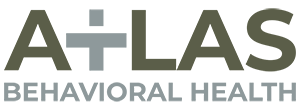When it comes to Molly vs Percocet, many people don’t realize just how different these substances are. One is a highly addictive prescription drug, while the other is a party drug often linked to music festivals and risky behavior. But both come with serious side effects and the potential for substance use disorder.
Understanding their effects, risks, and treatment options is crucial—especially if you or a loved one is struggling with drug addiction. At Atlas Behavioral Health, we provide evidence-based treatment in a safe and supportive environment to help individuals recover.
What is Molly?
Molly is the street name for MDMA, a synthetic drug that affects sensory perception and time perception. People often take it in pill form or as a crystalline powder. While some believe pure MDMA is safer than other club drugs, it’s often mixed with synthetic cathinones (similar to bath salts) or other illicit drugs, increasing the risk of addiction and adverse side effects.
The short-term effects of MDMA use include feelings of euphoria, heightened body temperature, increased heart rate, and enhanced mood swings. Many users take Molly in party environments, such as music festivals, where they may also engage in unsafe sexual behavior or mix it with alcohol.
However, these desired effects come with dangers, including serotonin syndrome, kidney failure, and even heart failure in extreme cases. The long-term use of Molly can also lead to cognitive impairments, including memory loss, mood swings, and trouble regulating emotions.
Despite being seen as a recreational drug, the United States government classifies it as a high-potential substance for abuse, making its use illegal. Many people assume it’s a harmless party drug, but the reality is that MDMA addiction can be just as dangerous as prescription medications when misused.
What is Percocet?
Percocet is a brand name prescription drug that combines oxycodone (a powerful opioid) with acetaminophen. It’s commonly used to treat severe pain but carries a high risk of addiction. Unlike Molly, which affects sensory perception, Percocet works by binding to opioid receptors in the brain, reducing pain but also slowing down bodily functions.
As a highly addictive prescription drug, Percocet is classified as a Schedule II controlled substance by the Drug Enforcement Administration. It is often prescribed for chronic pain, but due to its potency, many individuals misuse it, leading to substance abuse and, in severe cases, drug overdose.
The short-term effects of Percocet include feelings of euphoria, drowsiness, and shallow breathing. However, prolonged or long-term use can result in serious side effects, such as cognitive impairments, kidney failure, and heart failure.
Many young adults and those struggling with mental health issues may misuse prescription medications like Percocet, believing them to be safer than street drugs. However, when taken outside of medical supervision, they pose just as much risk as illicit drugs like Molly.
Comparing Molly vs Percocet
At first glance, Molly vs Percocet might seem like two completely different substances, but both come with serious side effects and a high risk of addiction.
- Molly is a hallucinogenic drug that alters sensory perception, while Percocet is an opioid used for pain management.
- Molly’s effects are often unpredictable because it’s frequently mixed with synthetic cathinones or other illicit drugs.
- Percocet, when misused, can lead to opioid addiction, requiring medical supervision and a structured detox program.
- Both can cause serious health effects, including heart failure, kidney failure, and cognitive impairments when abused.
Many people assume that recreational drugs like Molly are less harmful than prescription medications, but the reality is that both can lead to long-term health issues and addiction. Whether obtained from a drug dealer or a pharmacy, these substances should never be misused.
Legal Status
The legal status of Molly vs Percocet differs significantly.
Molly (MDMA) is an illicit drug, classified as a Schedule I substance by the United States government, meaning it has no medical use and a high risk of addiction. Possession, distribution, or use is illegal, and penalties can include fines, probation, or imprisonment.
Percocet, on the other hand, is a highly addictive prescription drug categorized as a Schedule II controlled substance by the Drug Enforcement Administration. It is legal when prescribed for severe pain, but misuse—such as taking it without a prescription—can lead to criminal charges.
Both drugs are monitored for drug trafficking, and drug dealers often sell counterfeit versions laced with synthetic cathinones or fentanyl, increasing the risk of addiction and overdose.
Understanding the legal status of these different substances is essential to avoid serious health issues and legal trouble. If you or someone you know is struggling with substance use disorder, seeking professional help from a treatment center is the best step toward recovery.
Risks of Mixing Molly and Percocet
Combining Molly vs Percocet is dangerous and can have serious side effects.
Molly increases heart rate, body temperature, and sensory perception, while Percocet slows breathing and impairs motor functions. Mixing the two puts extreme stress on the heart and kidneys, increasing the risk of heart failure, kidney failure, and overdose.
Users may also experience shallow breathing, confusion, mood swings, cognitive impairments, and unsafe sexual behavior. Because Molly’s effects alter time perception, users may take more Percocet than intended, leading to drug overdose.
Many individuals mix these drugs at music festivals or parties, unaware of the high potential for addiction and lasting health effects. Long-term use can lead to severe mental health issues, memory loss, and substance abuse.
If you or a loved one has engaged in polydrug use, seeking immediate medical attention is crucial. A treatment center can help manage withdrawal symptoms and reduce the risk of long-term damage.
Treatment and Recovery
Overcoming Molly vs Percocet addiction requires medical supervision and a structured drug rehab. At Atlas Behavioral Health, we offer evidence-based treatments to help individuals regain control of their lives.
Our detox program helps clients withdraw safely while managing serious side effects such as shallow breathing, anxiety, mood swings, and cravings. Medical professionals oversee the process to prevent complications.
Following detox, we provide cognitive behavioral therapy (CBT) to address the psychological effects of addiction. Support groups and coping skills training help individuals build healthier habits and prevent relapse.
Because addiction often stems from underlying mental health conditions, we offer specialized care for depression, PTSD, and anxiety disorders. Our goal is to provide long-term recovery solutions that go beyond detox.
If you or a loved one is struggling with substance use disorder, professional help is the key to lasting change.
Finding Recovery
Understanding the dangers of Molly vs Percocet is crucial for anyone struggling with drug use. Both substances pose serious health risks, increase the likelihood of substance abuse, and require medical supervision for recovery.
If you or a loved one is battling drug addiction, don’t wait. Contact us today to begin your journey toward wholeness and empowerment.





